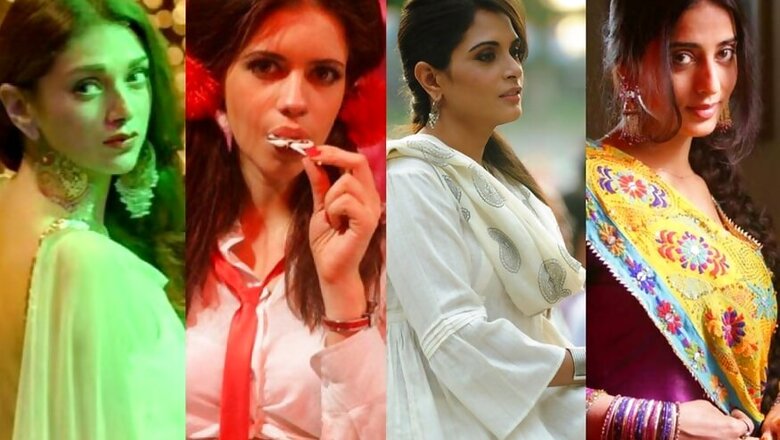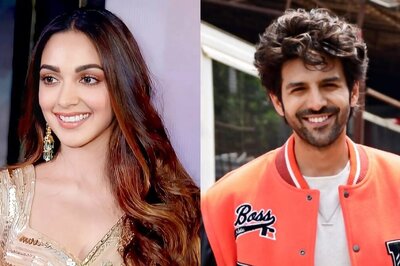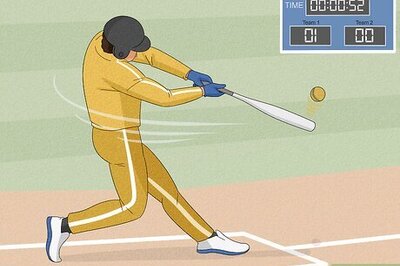
views
It was in 1917 when Sarat Chandra Chattopadhyay penned a Bengali novella that was to become a source of inspiration for the Indian film industry for years to come. Devdas, the feudal tale of three lovers- Devdas, Paro and Chandramukhi, continues to rule over the hearts and minds of Indian filmmakers and cinephiles. The doomed love story essentially tells of a tragic romance lost in the clutches of societal hierarchy, family and tradition. It is a tale of pain, love, longing and self-destruction. And for many, synonymous with a tragic aashiq, owing to lines like “Kaun kambakht bardaasht karne ko peeta hai? Main toh peeta hoon ke bas saans le saku".
While the protagonist Devdas follows a declining trajectory in almost all its big screen adaptations and recreations lifted from the original, it is the female characters- Paro and Chandramukhi- who are bold, unswerving and unwavering each time the story finds its way to the big screen. Even in a society that is predominantly male-led, the two remain resolute in love, life, and passion - no matter what and how the depiction maybe.
Paro, Devdas’ childhood lover, continues to love him even after he spinelessly turns his back on her, unable to stand up to his casteist parents. In retrospect, it was Paro who went to Dev’s house at an odd hour to seek marriage in days when society was unfair far more than it is today.
Chandramukhi, perhaps the most selfless of the three, knew Dev would never let go off Paro, even if she lives only in his memories and thoughts. But she continued to heap love, respect and admiration on Dev without apology. She loved him even when he didn’t. She was firm and unflinching, yet vulnerable in a majestic way.
The film has been recreated and adapted on big screen umpteen times but the depiction of Paro and Chandramukhi grossly remains shadowed in the presence of a character as melancholy as Devdas. Like for instance in the recently released film, Daas Dev, a journey from Daas to Dev in reverse gear, the characters of Richa (Paro) and Aditi Rao Hydari (Chandni Mehra) don’t have enough meat to clinch on. The characters are resolute like they should be, but not etched well enough to turn memorable.
Sudhir Mishra gets a plus for narrating the story from Chandni’s perspective. In Aditi, we see Chandni, a self-sufficient woman, a political hustler, who knows secrets of the big bad world of politics. She knows she’s the best in business and so does everyone else. In order to save and protect her weakness, Dev Pratap Chauhan (Rahul Bhat), she plays to her strengths. She doesn’t weep in one corner but uses mind games and strategies, both fair and foul, to turn the tables for him. Knowing he will never love her back, she continues to fight the fight for him.
Richa’s Paro, on a similar note, holds her fort in the story. Even though the story is male-dominated in every which way, her Paro doesn’t wait for her love to come back. She instead locks horns with him in politics and seeks a well-timed revenge. Just like Dev, Paro is also power hungry and walks the talk well.
But again, the focus is on Dev. Bhat’s Dev is already an alcoholic when he is introduced and, egged on by his uncle and a close family aide, he decides to contest elections. Torn between family, politics, power, love and lust in this case, Dev walks out with the most screen time and the most meat yet again.
While the works of Pramathesh Barua, Bimal Roy and Sanjay Leela Bhansali, among others, tried to stay close to the original (not sure if Bengalis would agree), Anurag Kashyap’s Dev D was another contemporary take on the same. Set in Punjab and Delhi, the film brings to fore the familial ties that are negotiated by traditions of patriarchy, power and honour. In Kashyap’s interpretation of Chandramukhi, Leni, played ably by Kalki Koechlin, refused to live a life of shame post an MMS sex scandal and chose to work as a prostitute. She studied during the day and fulfilled many desires of men in the dark.
Kashyap found his Paro in Mahi Gill. Paro, an idealistic, young and bold Punjabi girl, is quick to turn her back on her childhood sweetheart Dev, once he shows his utterly chauvinistic side on hearing scandalous rumours about her. She marries a man of her parents’ choice but continued to have a tongue sharp enough to put even the wittiest of men to silence.
Dev, again, is at his best reckless behaviour, drowning in alcohol, drugs, patriarchy and ego and this time it’s Abhay Deol who experiments with the classic character and walks out successful.
So while the 17 big screen depictions of Devdas have given a cult status to Dilip Kumar, Shah Rukh Khan and a niche one to Abhay Deol (to name a few), the Paros and Chandramukhis are yet to get their due.


















Comments
0 comment